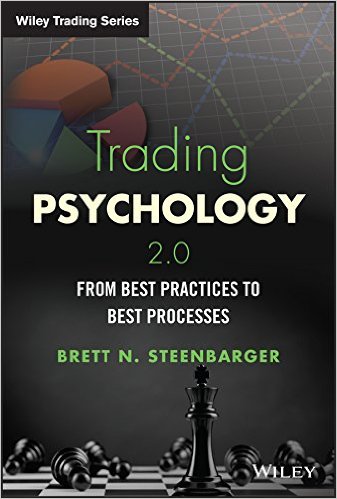I think more than anything it has to be discipline. Because as important as finding a suitable methodology, developing a strategy, sound risk management, and position sizing is, it will be for nothing if you don’t have the discipline to consistently execute it and follow your rules.
Discipline is an integral part of all trading, whether systematic or discretionary, day trading or buy-and-hold, across all asset classes. I don’t believe you can be consistently successful without it.
Risk control based on risk per trade, risk control based on sector, risk control based on total portfolio.
You must know how much you can lose on a given trade, and the maximum loss to your entire portfolio at any one time. Only then can you take the necessary measures to manage these risks.
Almost equally important is correct trading psychology. Being able to accept trades that do not work. Staying focused and strong in the complete uncertainty of trading.
Because even the best trading system will have losing periods and this is when you need to remain discipline and continue executing your trades.
A trader must have many different ingredients to be successful in trading, but what is absolutely critical is that you must love the type of trading you do.
Many people think they have a passion for trading but the reality of trading; watching charts, managing risk all day, is not as exciting as many believe. If you are a day trader then you must actively enjoy this process.
If not, you must find another form of trading (or profession) that suits your style. That might be swing trading, automated trading, systems trading, whatever. But what you must have is passion!
 If you are serious about your trading there are some concepts you must know in significant details. Those concepts will help you build a strong foundation on which you can build a trading system. There are seven concepts you should study:
If you are serious about your trading there are some concepts you must know in significant details. Those concepts will help you build a strong foundation on which you can build a trading system. There are seven concepts you should study:
 Momentum : If you understand this you will understand trends and mean reversion. You will understand why and how momentum works in the market. Most indicators are momentum based. Trend following and buying strength also works, so does mean reversion. They are all part of the momentum phenomenon.
Momentum : If you understand this you will understand trends and mean reversion. You will understand why and how momentum works in the market. Most indicators are momentum based. Trend following and buying strength also works, so does mean reversion. They are all part of the momentum phenomenon. 
 A day trader should leave no room for fear and greed to take over, otherwise, this will be the key to your losses. A good trader should be disciplined, make discipline a habit, and act in accord with trading systems/strategies. You can do your trade in a consistent and reliable manner this way. Certain situations require an individual to make decisions based on their pre-set criteria and parameters.
A day trader should leave no room for fear and greed to take over, otherwise, this will be the key to your losses. A good trader should be disciplined, make discipline a habit, and act in accord with trading systems/strategies. You can do your trade in a consistent and reliable manner this way. Certain situations require an individual to make decisions based on their pre-set criteria and parameters. 1. Discipline, while necessary for success, is never sufficient. Discipline does not substitute for skill, talent, and insight. Strict, disciplined adherence to mediocre plans can only lock in mediocre results. If it were otherwise, there would be no losing automated trading systems.
1. Discipline, while necessary for success, is never sufficient. Discipline does not substitute for skill, talent, and insight. Strict, disciplined adherence to mediocre plans can only lock in mediocre results. If it were otherwise, there would be no losing automated trading systems.